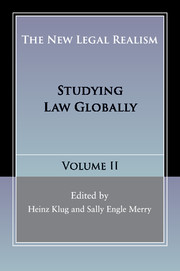Featured in The New Legal Realism: Studying Law Globally (Cambridge University Press)
Sociolegal scholars have been sensitive to the variety of ways that law in action differs from law on the books. Gaps between the two are especially likely to arise when law moves across boundaries. This chapter looks at the use of law in HIV clinics (in the United States, South Africa, Thailand, and Uganda) that are involved in both treatment and research. In this case, law moves simultaneously across two boundaries when it is transported from legal arenas to medical settings and from the global North to the global South. Because the (new) legal forms are arriving in settings that already have rules, guidelines, and norms, the process of importation is quite complex. Moreover, medical conventions about how to work with rules are different than lawyerly ways of using rules, necessitating further adjustments.
To explore these processes of transnational diffusion of rules and their associated norms, we focus on the role of staff in key intermediary organizations who act as “regulatory wranglers” (Heimer 2013) both to adapt rules to local realities and to make local realities appear more legible to and in line with what the rules require, thereby contributing to “regulatory success.” Their roles in facilitating organizational and normative change recall the work of Merry’s (2006a) “translators,” Silbey’s (2011) “sociological citizens,” and Sturm’s (2006) “organizational catalysts” who enable uptake and modification of new norms and conventions originally developed at a distance from sites of implementation. In this way, our research offers a new lens through which to explore mechanisms, processes, and impacts associated with the globalization of law.

